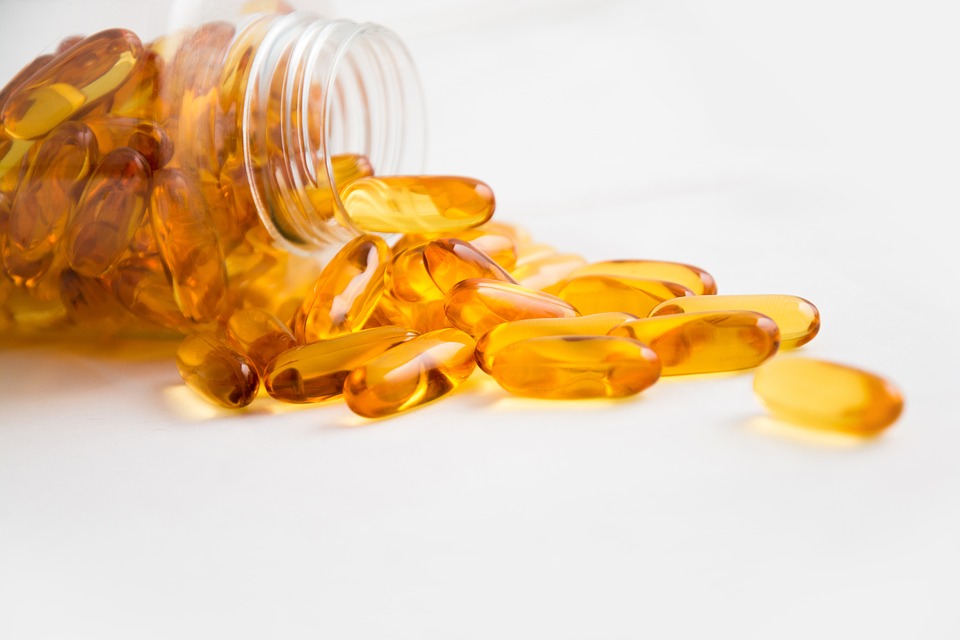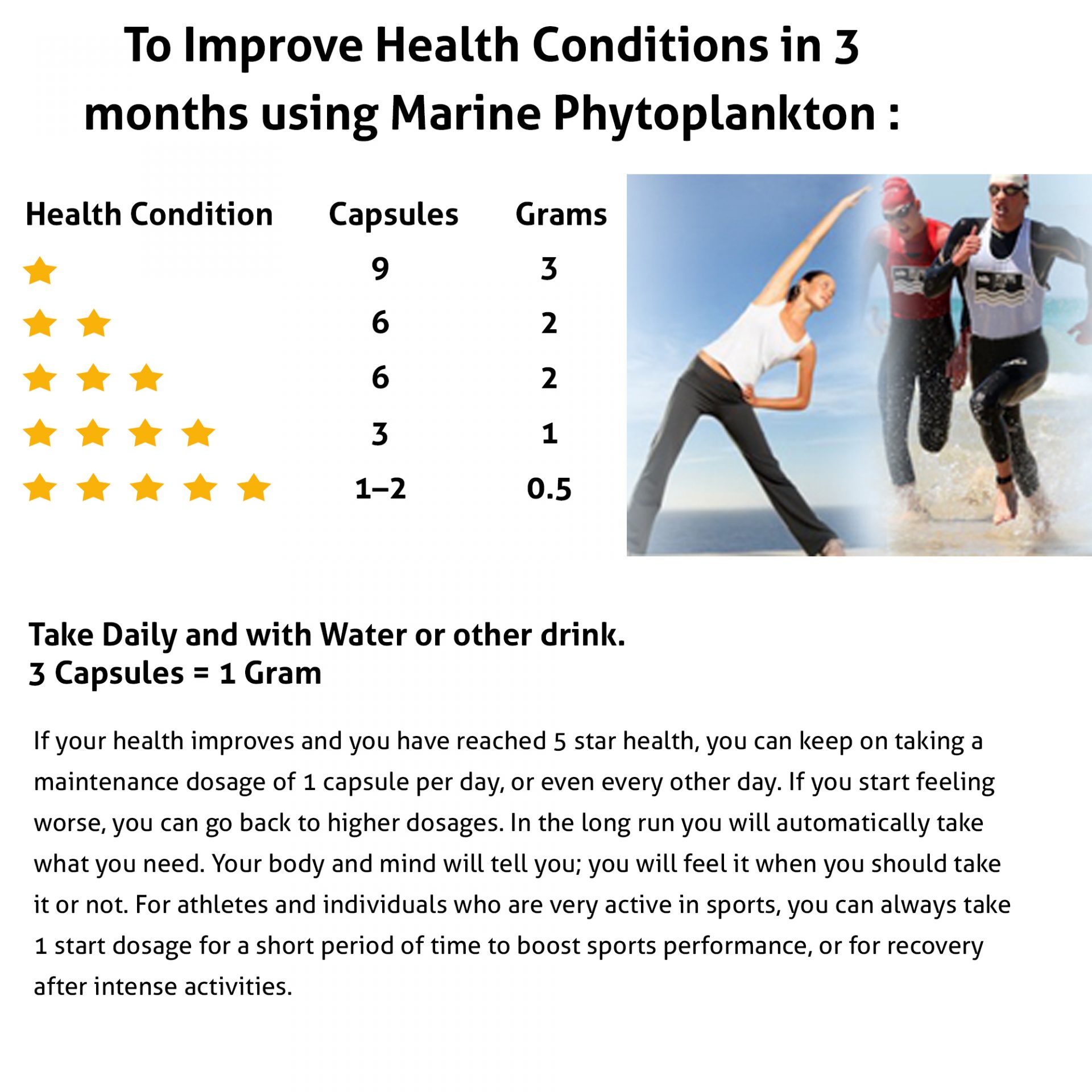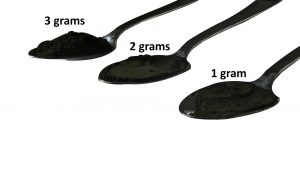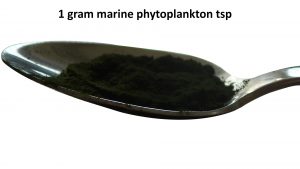Omega-3
The oceans of Earth contains trillions of fish and phytoplankton. Both fish and phytoplankton are good sources of omega-3 polyunsaturated fatty acids. But which one is the better option?
Alternative
Research of the University of Maryland Medical Center has indicated that dietary omega-3 fatty acids can help reduce the risk of heart disease. Historically, fatty ocean fish is used as source for omega-3 fatty acids supplements.
However, this same compound is present in phytoplankton, and in much higher quantities. With this discovery, marine phytoplankton capsules with a high concentration of omega-3 fatty acids are now available.
Omega-3 Fatty Acids
Let’s have a look at what omega-3 is. Omega-3 is short for omega-3 fatty acid and this family of fatty acids play an important role in the human body.
Omega-3 fatty acids are polyunsaturated, meaning that they have several double bonds in the chemical structure.
The three most important types are ALA (alpha-linolenic acid), DHA (docosahexaenoic acid) and EPA (eicosapentaenoic acid).ALA is mainly found in plants, while DHA and EPA are mainly found in animal foods and algae.
The human brain needs omega-3 to function properly, and the body needs omega-3 for growth and development.
However, our body can’t make omega-3, so we need to consume these fatty acids in foods or as supplements.
Historically, fish oil for omega-3 supplementation was the only option. In addition to fish oil omega 3, there are some common foods that are high in omega-3 fatty acids, like flax seeds, chia seeds, flaxseed oil and walnuts, to name a few.
To date, there is no official recommended daily allowance of omega-3s. However, most health organizations agree that 250–500 mg of combined EPA and DHA is enough for adults to maintain overall health.
Fish Oil Omega 3
As mentioned earlier, fish and fish oil contain eicosapentaenoic acid (EPA) and docosahexaenoic acid (DHA). These two types of fish oil omega 3 have proven cardio-protective properties.
According to the National Institutes of Health, fatty fish provides about 1 gram of omega-3 fatty acids in 3.5 ounces of fish. It is recommended that you broil or bake your fish. Frying fish in other oils will cancel its protective properties.
Phytoplankton Omega 3
Phytoplankton, also known as microalgae, are similar to terrestrial plants in that they contain chlorophyll and require sunlight in order to live and grow. Most phytoplankton live in cooler, nitrogen-rich parts of the ocean, such as the north Atlantic and Pacific areas.
These single-celled creatures live in the upper levels of the ocean, where they use solar energy to create molecules important to life. Omega 3 fatty acids make up half the body weight of phytoplankton called thraustochytrids. The Enviro-Health Research Laboratories analyzed the total EPA and DHA levels to be 14.4 milligrams per gram of powdered phytoplankton.
Comparison: marine phytoplankton and fish oil for omega 3 supplementation
Both fish oil and marine phytoplankton contain essential omega-3 fatty acids. Out of these two, marine phytoplankton has more omega 3 per weight.
In addition, fish accumulate environmental contaminants during their lifespan. Phytoplankton only have a short lifespan, sensitive to environmental change.
Concerns for sustainability
An alternative source for fish oil omega 3 supplements may assist an already-taxed fishing industry. Many environmental organizations have shown evidence that some species are being overfished solely to supply the market with fish oil omega 3. Consider this: 600 sardines are needed to make 1 500mg bottle of omega 3 fish oil.
According to Save Our Seas, 75 percent of the world’s fish populations are removed faster than they can reproduce, 80 percent of that is completely exploited, and about 90 percent of all large predatory fish (i.e. tuna, sharks, cod) have vanished. Scientists now believe that fisheries will collapse by 2050 if current practices continue.
Consuming omega 3 without being part of overfishing
Marine Phytoplankton capsules for omega 3 supplementation are the answer. Particularly vegans looking to include DHA and EPA in their diets can get this from phytoplankton.
In fact, from an environmental perspective, it makes sense for omnivores to choose phytoplankton-derived supplements over fish oil, too.
So don’t be part of the problem, be part of the solution!
Here are some interesting articles if you’d like to read more about sustainability issues surrounding fish oil:
MNM – The truth about fish oil
New York Times – A Fish Oil Story
One Green Planet – Omega 3 fats in vegan diets
Omega 3 read more about it in our marine phytoplankton




